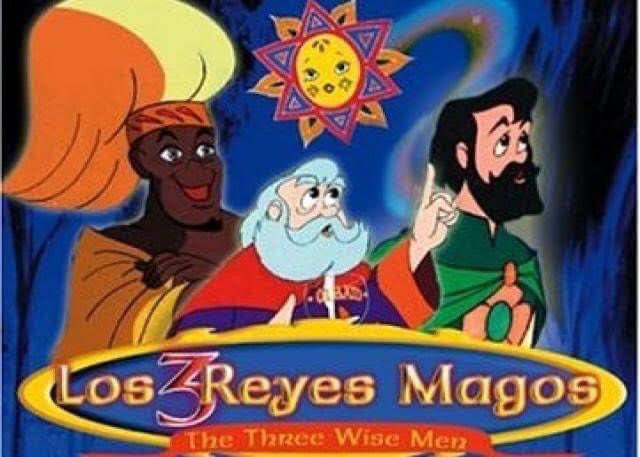
We open the 2022 Winter Season with our traditional celebration of Three Kings Day, a long held tradition in Cuba, where, despite six decades of Communist culture, is now resurging. As a special treat for children of all ages, we are proud to offer the 1974 Mexican film Los 3 Reyes Magos, directed by Fernando Ruiz. Produced in 1974, it is the first full-length animated film from Latin America. Written by the renowned Mexican writer Rosario Castellanos, the design is based or the craftwork of Metepec, famous for its fine pottery items. In Spanish.
This Cine Focus presentation complements our Language Access Program and it will be streamed one night only on our Vimeo channel.
Please click on this link on the scheduled date and time:
[No longer active]
 Filmmaker Fernando Ruiz Álvarez (1942-2021) is often described as the father of Mexican animation. After studying film direction in his native Mexico City, Ruíz earned a scholarship in 1961 to specialize in animation at UCLA. Before long, he was an assistant animator on The Sword and the Stone at Disney, where he was mentored by fellow Mexican immigrant Dan MacManus. He left the House of Mouse with an understanding of animation production, which he would use to develop the industry in his homeland. Returning to Mexico, he directed the short El músico, a spin on Grieg’s Peer Gynt suite that paid homage to Disney’s Fantasia and Make Mine Music; it won a prize at Guadalajara’s film festival. He founded his own studio, Anim-Art Producciones, which went on to produce shorts, features, and hundreds of commercials. The studio’s most groundbreaking title was the Biblical retelling Los tres reyes magos (The Three Wise Men, pictured at top), a 1976 feature Ruíz produced and directed with Adolfo Torres Portillo. With it, Ruíz succeeded in doing for Mexico what Disney had done for the U.S.: releasing the country’s first animated feature.
Filmmaker Fernando Ruiz Álvarez (1942-2021) is often described as the father of Mexican animation. After studying film direction in his native Mexico City, Ruíz earned a scholarship in 1961 to specialize in animation at UCLA. Before long, he was an assistant animator on The Sword and the Stone at Disney, where he was mentored by fellow Mexican immigrant Dan MacManus. He left the House of Mouse with an understanding of animation production, which he would use to develop the industry in his homeland. Returning to Mexico, he directed the short El músico, a spin on Grieg’s Peer Gynt suite that paid homage to Disney’s Fantasia and Make Mine Music; it won a prize at Guadalajara’s film festival. He founded his own studio, Anim-Art Producciones, which went on to produce shorts, features, and hundreds of commercials. The studio’s most groundbreaking title was the Biblical retelling Los tres reyes magos (The Three Wise Men, pictured at top), a 1976 feature Ruíz produced and directed with Adolfo Torres Portillo. With it, Ruíz succeeded in doing for Mexico what Disney had done for the U.S.: releasing the country’s first animated feature.
Rosario Castellanos Figueroa (1925 – 1974) was a Mexican poet and author. She was one of Mexico’s most important literary voices in the last century. Throughout her life, she wrote eloquently about issues of cultural and gender oppression, and her work has influenced Mexican feminist theory and cultural studies. Though she died young, she opened the door of literature to many women, and left a legacy that still resonates today.
in the last century. Throughout her life, she wrote eloquently about issues of cultural and gender oppression, and her work has influenced Mexican feminist theory and cultural studies. Though she died young, she opened the door of literature to many women, and left a legacy that still resonates today.
And is supported, in part, by public funds from the New York City Department of Cultural Affairs in partnership with the City Council, and made possible by the New York State Council on the Arts and the New York State Legislature.
![]()
![]()
With the promotional collaboration of
